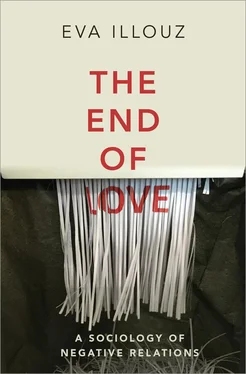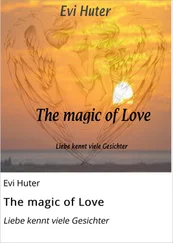6 6. Leslie Bell, Hard to Get: Twenty-Something and the Paradox of Sexual Freedom (Berkeley: University of California Press, 2013).
7 7. Pierre Bourdieu, Distinction: A Social Critique of the Judgement of Taste, trans. Richard Nice (Cambridge, MA: Harvard University Press, 1984); Mary Douglas and Baron Isherwood, The World of Goods: Towards an Anthropology of Consumption, vol. 6 (1979; London: Psychology Press, 2002); Mike Featherstone, Consumer Culture and Postmodernism (London: SAGE Publications, 2007); Eva Illouz, Consuming the Romantic Utopia: Love and the Cultural Contradictions of Capitalism (Berkeley: University of California Press, 1997); Eva Illouz, Cold Intimacies: The Making of Emotional Capitalism (Cambridge: Polity Press, 2007); Arlie Russell Hochschild, The Managed Heart: Commercialization of Human Feeling (Berkeley: University of California Press, 1992); Arlie Russell Hochschild, The Commercialization of Intimate Life: Notes from Home and Work (Berkeley: University of California Press, 2003); Axel Honneth, “Organized Self-realization Some Paradoxes of Individualization,” European Journal of Social Theory 7, no. 4 (2004): 463–478; Micki McGee, Self-help, Inc.: Makeover Culture in American Life (New York: Oxford University Press, 2005); Ann Swidler, Talk of Love: How Culture Matters (Chicago: University of Chicago Press, 2003).
8 8. Milton Friedman, Capitalism and Freedom (1962; Chicago: University of Chicago Press, 2009); Friedrich August Hayek, The Road to Serfdom: Text and Documents: The Definitive Edition, ed. Bruce Caldwell (1944; New York: Routledge, 2014); Karl Polanyi, The Great Transformation: The Political and Economic Origins of Our Time (1944; Boston: Beacon Press, 1944).
9 9. As Beatrice Smedley remarks (personal communication) not all love stories in India (Shakuntala by Kalidasa, fourth–fifth century, or the Kama Sutra) and China (The Carnal Prayer Mat by Li Yu, seventeenth century) were informed by religious values, nor was The Tale of Genji by Murasaki Shikibu (eleventh-century Japan). Similarly, in the West a non-religious romantic tradition coexisted with the one shaped by Christianity: Sappho, Catullus, Ovid, Ronsard, and Petrarch found their sources in classical mythology.
10 10. Howard R. Bloch, Medieval Misogyny and the Invention of Western Romantic Love (Chicago: University of Chicago Press, 1992); Karen Lystra, Searching the Heart: Women, Men, and Romantic Love in Nineteenth-century America (New York: Oxford University Press, 1989); Steven Seidman, Romantic Longings: Love in America, 1830–1980 (New York: Routledge, 1991); Irving Singer, The Nature of Love, vol. 3, The Modern World (Chicago: University of Chicago Press, 1989).
11 11. It was strangely omitted by Max Weber in his monumental study of the different cultural paths taken by the West and the East. See Max Weber, The Religion of China: Confucianism and Taoism, ed. and trans. Hans Gerth (1915; London: MacMillan Publishing Company, 1951).
12 12. Stephanie Coontz, Marriage, A History: From Obedience to Intimacy, or How Love Conquered Marriage (New York: Viking Press, 2006).
13 13. Ulrich Beck, Elisabeth Beck-Gernsheim, Mark Ritter, and Jane Wiebel, The Normal Chaos of Love (Cambridge: Polity Press, 1995); Ulrich Beck and Elisabeth Beck-Gernsheim, Individualization: Institutionalized Individualism and Its Social and Political Consequences (London: SAGE Publications, 2002); Stephanie Coontz, Marriage, A History: From Obedience to Intimacy, or How Love Conquered Marriage (New York: Viking Press, 2006); Helga Dittmar, Consumer Culture, Identity and Well-being: The Search for the “Good Life” and the “Body Perfect” (London: Psychology Press, 2007); Anthony Giddens, Modernity and Self Identity: Self and Society in Late-Modern Age (Cambridge: Polity Press, 1991); Anthony Giddens, The Transformation of Intimacy: Sexuality, Love, and Eroticism in Modern Societies (Stanford, CA: Stanford University Press, 1992); Jason Hughes, “Emotional Intelligence: Elias, Foucault, and the Reflexive Emotional Self,” Foucault Studies 8 (2010): 28–52; Alan Hunt, “The Civilizing Process and Emotional Life: The Intensification and Hollowing Out of Contemporary Emotions,” in Emotions Matter: A Relational Approach to Emotions, ed. Alan Hunt, Kevin Walby, and Dale Spencer (Toronto: University of Toronto Press, 2012), 137–160; Mary Holmes, “The Emotionalization of Reflexivity,” Sociology 44, no. 1 (2010): 139–154; Richard Sennett, The Fall of Public Man (Cambridge: Cambridge University Press, 1977); Lawrence D. Stone, The Family, Sex and Marriage in England 1500–1800 (London: Penguin Books, 1982).
14 14. Stephanie Coontz, Marriage, A History: From Obedience to Intimacy, or How Love Conquered Marriage (New York: Viking Press, 2006).
15 15. Gerald Allan Cohen, Self-ownership, Freedom, and Equality (Cambridge: Cambridge University Press, 1995), 12.
16 16. Anthony Giddens, Modernity and Self-Identity: Self and Society in Late-modern Age (Cambridge: Polity Press, 1991); Anthony Giddens, The Transformation of Intimacy: Sexuality, Love, and Eroticism in Modern Societies (Stanford, CA: Stanford University Press, 1992).
17 17. Axel Honneth, The Struggle for Recognition: The Moral Grammar of Social Conflicts, trans. Joel Anderson (Cambridge: Polity Press, 1995).
18 18. Camille Paglia, Sex, Art and American Culture (New York: Vintage, 1992).
19 19. George G. Brenkert, “Freedom and Private Property in Marx,” Philosophy and Public Affairs 2, no. 8 (1979): 122–147; Émile Durkheim, The Elementary Forms of the Religious Life, trans. Karen E. Fields (1912; New York: Simon & Schuster, 1995); Émile Durkheim, Moral Education, trans. Everett K. Wilson and Herman Schnurer (1925; New York: Free Press, 1961); Émile Durkheim, Durkheim on Politics and the State, ed. Anthony Giddens, trans. W. D. Halls (Stanford, CA: Stanford University Press, 1986); Émile Durkheim, Suicide: A Study in Sociology, trans. John A. Spaulding and George Simpson (1897; New York: Simon & Schuster, 1997); Anthony Giddens, Capitalism and Modern Social Theory: An Analysis of the Writings of Marx, Durkheim and Max Weber (Cambridge: Cambridge University Press, 1971); Karl Marx, The Grundrisse, ed. and trans. David McLellan (1939–1941; New York: Harper & Row, 1970); Karl Marx, “The Power of Money,” in Karl Marx and Friedrich Engels: Collected Works, vol. 3 (1844; New York: International Publishers, 1975); Karl Marx, “Speech on the Question of Free Trade,” in Karl Marx and Friedrich Engels: Collected Works, vol. 6 (1848; New York: International Publishers, 1976); Karl Marx and Friedrich Engels, “The German Ideology,” in Karl Marx and Friedrich Engels: Collected Works, vol. 5 (1932; New York: International Publishers, 1975); Karl Marx and Friedrich Engels, “Manifesto of the Communist Party,” in Karl Marx and Friedrich Engels: Collected Works, vol. 6 (1848; New York: International Publishers, 1976); Georg Simmel, Freedom and the Individual, in On Individuality and Social Forms: Selected Writings, ed. and with an introduction by Donald N. Levine (Chicago: University of Chicago Press, 1971), 217–226; Georg Simmel, “The Stranger,” in On Individuality and Social Forms: Selected Writings, ed. and with an introduction by Donald N Levine (Chicago: University of Chicago Press, 1971), 143–149; Max Weber, Die Verhältnisse der Landarbeiter im ostelbischen Deutschland, vol. 55 (Leipzig: Duncker & Humblot, 1892); Max Weber, The Protestant Ethic and the Spirit of Capitalism, trans. T. Parsons, A. Giddens, with an introduction by A. Giddens (1904–1905; London: Routledge, 1992); Max Weber, Max Weber: The Theory of Social and Economic Organization, trans. A. M. Henderson and T. Parsons, ed. and with an introduction by T. Parsons (1947; New York: The Free Press, 1964).
20 20. Axel Honneth, Freedom’s Right: The Social Foundations of Democratic Life, trans. Joseph Ganahl (New York: Columbia University Press, 2014).
Читать дальше












